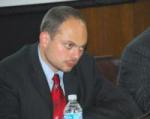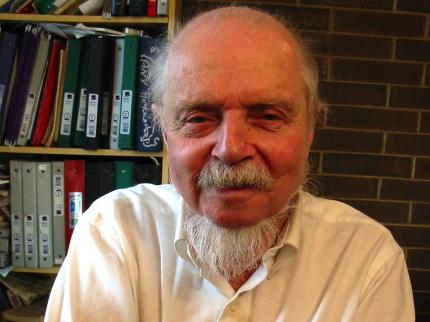Vladimir Karqa Murza
http://worldaffairsjournal.org...May 12th marked the 90th birthday of Alexander Yesenin-Volpin, a towering figure in the Russian human rights movement—indeed, its founding father. A renowned mathematician, poet, and
philosopher who was arrested and sent to psychiatric prisons three times—under Stalin (1949), Khrushchev (1959), and Brezhnev (1968)—Yesenin-Volpin successfully convinced his fellow dissenters in the early 1960s that the right way to resist Soviet totalitarianism was through a peaceful, nonviolent, law-based human rights movement.
“I was astounded by the serious way he discoursed on rights in this country of legalized coercion… What sense was there in expounding our laws? It was like expounding humanitarianism to a cannibal,” legendary dissident Vladimir Bukovsky professed in his memoirs, To Build a Castle. “‘You’re crazy, Alik,’ we used to say. ‘Anyway, who’s going to listen to you with your theories about the law? They’ll go on jailing you, just as they did before. What difference will it make?’… But having had our laugh we were obliged to agree that if you answered lawlessness with lawlessness, there was precious little chance of ensuring observance of the law. There was simply no other way. In exactly the same way, answering violence with violence would only multiply violence, and answering lies with lies would never bring us closer to the truth… Power rests on nothing other than people’s consent to submit, and each person who refuses to submit to tyranny reduces it by one two-hundred-and-fifty-millionth, whereas each who compromises only increases it.”
Alexander Yesenin-Volpin’s most famous moment came on December 5, 1965, when he successfully organized and held Moscow’s first opposition rally in four decades. At six o’clock that evening, several dozen people gathered at Pushkinskaya Square, in central Moscow, to demand glasnost—transparency—at the trial of two recently arrested writers, Andrei Sinyavsky and Yuli Daniel. Yesenin-Volpin held a poster with the words “Respect the Constitution!”
“The rally lasted about five minutes. I saw one person who had been holding a poster being dragged away. After two or three minutes, they [the KGB operatives] came to me and grabbed me by the hand, saying, ‘Let’s go,’” Yesenin-Volpin recalls in my documentary film They Chose Freedom. “‘Do you know who organizes rallies in our country?’ they asked me. ‘I think anyone can, we have the freedom of assembly in our constitution,’ I replied… ‘But why did you write this slogan, you must think that there are people who don’t respect the constitution?’ they asked. So I said, ‘There were people who stood at the rally holding posters which called for respecting the constitution, but now these people are being led away. I think that those who are leading them away do not have great respect for the constitution.’”
When I asked him what, in his view, was the main achievement of the Russian human rights movement, Yesenin-Volpin was emphatic in his response. “One myth has been shattered,” he said. “It is the idea that the idea of the rule of law is alien to Russians. I hope this myth will never reappear. It is true that the rule of law in Russia has traditionally been weak. But one cannot say that the rule of law is only a Western idea and that it does not exist in Russia. That was the myth. And that myth is gone.”


